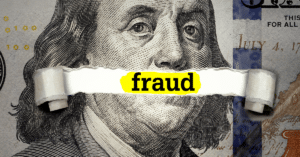As an insurance broker, you build your career on trust and integrity. You’re on the front lines, helping clients navigate the complex world of healthcare. But what happens when you see practices that just don’t feel right?
Managed care insurance fraud is an unfortunate reality, costing the government and taxpayers billions every year, raising healthcare costs, and putting a burden on everyone. For brokers, understanding the signs and options to take action can protect your clients, your reputation, and the healthcare system.
What Is Managed Care Insurance Fraud?
Managed care insurance fraud includes a range of illegal practices, like improper enrollment and upcoding, designed to unfairly profit at the expense of the US Taxpayers. Managed Care Organizations (MCOs) sometimes pressure brokers to participate in these schemes, all while losing sight of patient needs.
When you see these activities, you’re not just witnessing a violation of ethics. You’re watching a chain reaction that drives up healthcare costs for everyone and erodes trust in the system.
Managed Care Fraud Pressures and Red Flags for Insurance Brokers
Brokers often face immense pressure to hit sales targets, sometimes at the expense of doing what’s right. You might be told to steer clients toward higher-tier plans that cost them more, but provide bigger payouts for the company. Or you might notice a pattern of denying coverage to certain groups, like disabled individuals, just to keep costs down or boost enrollments elsewhere.
These tactics take advantage of vulnerable populations and contribute to a cycle of increased premiums, higher taxpayer burdens, and less affordable care for those who need it most.
Common managed care fraud red flags include:
Being asked to enroll members outside the approved periods using inaccurate or misleading information
- Pushing clients into unnecessary, expensive plans to inflate company profits
- Upcoding or inflating the severity of diagnoses to increase reimbursement rates
- Seeing company goals or bonuses tied directly to high-value plan enrollments, regardless of the client’s real needs
- Pressure to deny access or restrict plan options for certain individuals
If any of this feels familiar, you may be witnessing managed care fraud firsthand.
Fraud in managed care is a crime against the community. Every dollar lost to fraud is a dollar taken from patient care and taxpayer pockets. Inflated claims and unethical enrollments raise healthcare costs, hike up taxes, and diminish the quality of care for millions of Americans. Honest brokers and professionals are forced to compete in a landscape skewed by dishonest practices, making it hard to do the right thing.
The Role of Brokers in Reporting Managed Care Insurance Fraud
Insurance brokers play a vital, ethical role within their organizations and the greater healthcare system. By recognizing and reporting fraudulent practices, you’re acting on behalf of your colleagues, your clients, and every taxpayer footing the bill for fraud. Knowing how to report MCO fraud gives you a powerful tool to make real, positive change. Stepping up is a courageous act that restores fairness to the system.
But it’s normal to feel uncertain about next steps if you suspect healthcare fraud. Start by carefully documenting what you see. Keep notes, emails, or any materials that can support your observations. The whistleblower process is designed to be confidential and supportive. Reaching out for legal guidance helps you understand your rights and gives you the expert help you need. When you learn how to report managed care fraud with the support of a trusted whistleblower law firm, you make the path to action much simpler, and more rewarding.
Think You Witnessed Managed Care Fraud at Work?
By coming forward, you help uncover abusive practices that harm consumers, colleagues, and the entire healthcare system. Whistleblowers are heroes who restore justice and help ensure that funds go where they’re truly needed. Along with the moral satisfaction of making a difference, you may also qualify for a substantial financial reward for bringing fraud to light, sometimes up to 30% of any government recovered funds.
If you suspect managed care fraud, reach out to DJO Whistleblower Law Group. Our contingency-based approach means you pay nothing unless we secure a victory in your case. Your consultation is free and confidential, and our goal is to ensure you receive the highest possible reward for your insights.

authored by Christopher J. Piacentile
Director of Investigations DJO Whistleblower Law Group


